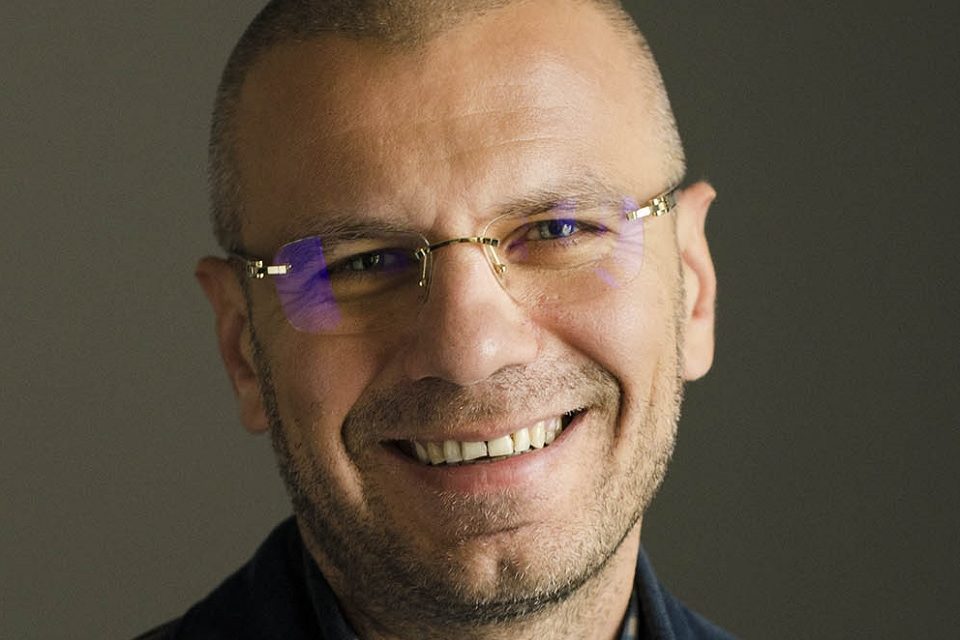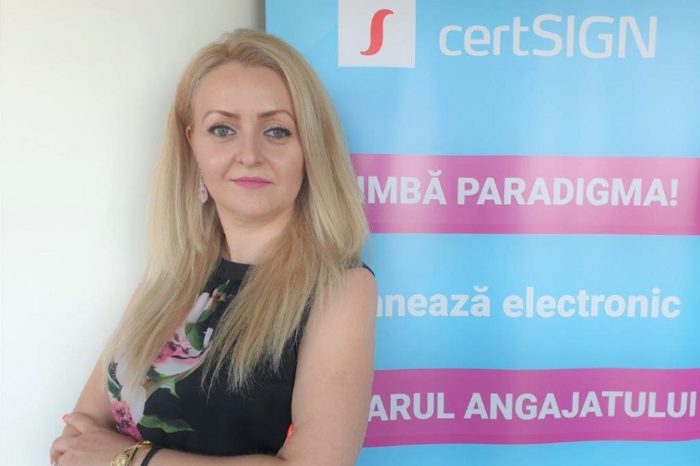Opening the road to a paperless, efficient, smart and fast workflow

In a digitized economy, companies offering integrated solutions to enhance the ability of companies to move faster and as much as paperless possible are of paramount importance.
Adrian Floarea, CEO of certSIGN offered The Diplomat-Bucharest his opinions on the company’s value proposition and goals for the fast transition to the digitized economy.
The digitization of a company implies, first of all, the improvement of the processes. Paperless flowSIGN is an innovative remote electronic signing solution, developed by certSIGN to facilitate the digitization process of any company. Smart, easy and efficient!
Paperless flowSIGN can be used by any organization in any field of business, private or state-owned, that deals with electronic documents, for internal and external use. It enables organizations of any size to legally sign a document by multiple signatories, securely send, track and follow-up on business documents directly in one platform.
It is a cost-efficient solution, as it does not require additional investments in IT infrastructure, except the workstations, as the solution is deployed through the cloud. This makes it easily available to all users anywhere, anytime, and on any device, thus increasing employee productivity by enabling faster interactions and keeping business processes digital from end-to-end. Our solution is secure, legally binding in all UE states, as it is compliant with the European eIDAS Regulation.
We have already implemented this solution within our company to sign all internal documents that need to be legally binding (work contracts, additional deeds, non-disclosure agreements etc). We have also implemented the solution with important companies in Romania, in such fields as oil&gas providers, financial and payment processing companies.
Using qualified electronic signatures, whose legal value is identical to that of a hand-written signature
The associated risks are minimal. For instance, the risks of using electronically signed documents are significantly smaller compared to the risks incurred by hand-signed documents that might get lost in the mail or whose signatures can be forged. Paperless flowSIGN relies on qualified electronic signatures, whose legal value is identical to that of a hand-written signature, issued by a trust service provider. A qualified electronic signature relies on multiple security mechanisms, has precisely defined regulatory constraints in terms of how the identity of the signer is verified and how the signature key is protected. A qualified electronic signature requires that the identity of the signer be validated beforehand and that the signature key be in a qualified electronic signature creation device (QSCD).
Thus, Paperless flowSIGN is developed by a trust service provider (certSIGN), certified in compliance with the eIDAS Regulation. The identity verification of the signature’s owner is performed remotely via video identification. After the identification, the user will either be given token that validates his or her identity and allows them to sign his or her documents after entering a personal PIN code or he/she can sign documents in cloud, with a two-factor authentication mechanism of the signatory once the signature request is triggered within the Paperless flowSIGN platform.
To sum up, besides the obvious benefits of being easier and faster than a hand-written signature, Paperless flowSIGN is:
- Private: the signatory is the only one with control of the keys used to create the electronic signature.
- Trusted – the signature data is managed by certSIGN – a Qualified Trust Service Provider (QTSP)
- Secure – the signature is protected from forgery
- Legally-binding
How to do the same things remotely? And naturally, digitization is the answer!
Generally speaking, digitalization has been a hot topic for years, but this health crisis has hastened things a bit. As work from home has become the new reality for most companies in Romania, digitalization solutions have also become essential for ensuring business continuity. The electronic signature is among the most used tools that trigger efficient digitalization as the use of electronic signatures meets the clients’ needs of business continuity, seamless business decision making and business processes. For us, the requests for qualified digital certificates for qualified electronic signatures have increased, especially the requests from end users (accountants, doctors, CFOs etc). However, we have noticed that an increasing number of companies is willing to implement electronic signatures at company level, not only for key position. That is one of the reasons why we have developed Paperless flowSIGN which is custom made to be used within companies and allows documents to be signed in a flow (by multiple signatories authorized to sign official company documents).
Business models will be increasingly organized as ecosystems based on data available in the cloud
The way digitalization will continue to spread depends on the needs for efficient and secure solutions generated by the private companies, but also on what the government does or does not do.
Regardless of the industry, business models will be increasingly organized as ecosystems based on data available in the cloud, collaborative platforms, applications and business efficiency solutions that allow them to operate at normal parameters, regardless of context. At the same time, businesses will need to capitalize on new technologies, based on data analysis, to improve and simplify customer experiences.
Another aspect is that many businesses will focus on mobility, will start using more mobile devices, data will be permanently accessible to employees to help them make more informed decisions and complete processes faster.
The legal coverage of the digitalization tools is also important. With respect to the electronic signature, at European level, the European Regulation 910/2014 (eIDAS Regulation) defines the legislative framework which regulates interaction in the electronic environment, simpler and more efficient for all parties involved.
Romania has great potential in terms of providing technological solutions that boost digitalization. We have the tools, the know-how and the technology, there is an European legal framework. All that remains is to have national legislative initiatives that support digital interaction among state-owned institutions and private companies/individuals, such as, for instance, the emergency governance regarding the use of qualified electronic signatures to sign the work contracts.
Achieving the goal of a broaden expertise
We will continue to focus on the development and permanent improvement of our product and solution portfolio. To this end, we will continue to invest in R&D activities, both at company level and within international R&D projects.
We will also continue to develop projects abroad. We provide solutions in 18 European countries, such as digital identity solutions in Norway, Finland, Belgium, Great Britain, Denmark and PKI solutions for one of the UN Agencies. But we aim higher and wish to make the most of the eIDAS Regulation and conclude several important contracts abroad that deal with the provision of trust services (electronic signatures), as well as to open our own office in another EU state.
We have always liked to be one step ahead of the times and will continue to think out of the box and develop innovative solutions.















